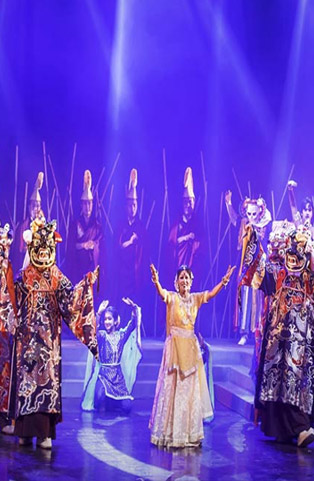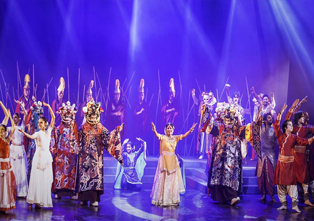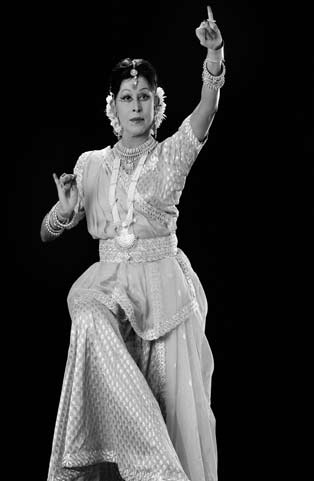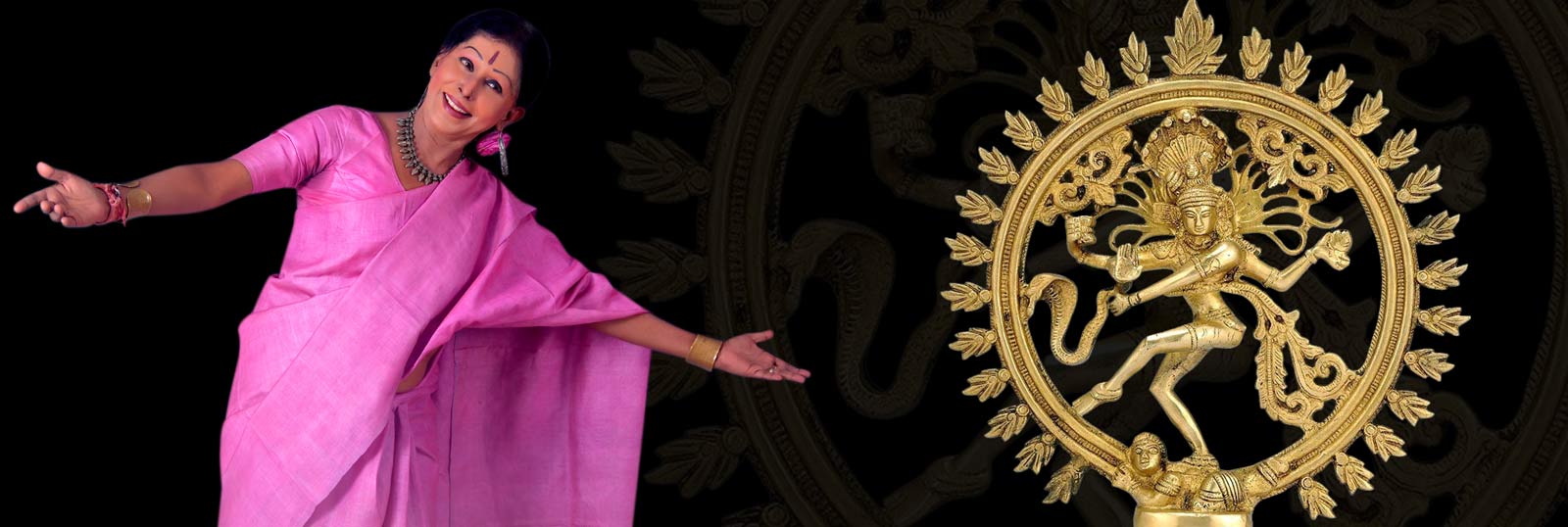'Nartaki Kavi Durbar Mein' This piece explored the dialogue between 'doha' (the self rhyming couplet - eg Kabir, Rahim) and 'choupai' (a quatrain verse eg of Tulsidas). But soon, both face the challenge of 'mukta chhand' poetry.
Yearwise Summary of Items and Productions
"NEY: Bansuri" at the Bansuri Festival, Kamani (organised by Raag Rang of Naina Devi) For the first time Sufi couplets of Maulana Jalaluddin Rumi ('Ney') was performed on stage by any classical dancer. This programme also explored – again for the first time - Sufi-Vaishnavism parallels through Verses of Rumi and Vaishnav poets Bihari and Surdas.
Ishrat-e-Farda (based on works of Amir Khusro, Kabir, Lal Ded, Rabia-al-Basra) This production was performed at various times and on various occasions and at various venues of Delhi and Lucknow since 1980. First Ishrat-e-Farda was performed to verses of Amir Khusro and Kabir. Later from mid-nineties, verses of Lal Ded and Rabia-al-Basra were added.
"Yama" Eternal pursuit is tinged with romanticism and humanism that touched the hearts and found expression in the poems of today what is known as the 'chhayavaad' period. The young and sensitive Shovana could not remain untouched by such poems and the works of Mahadevi Varma bore fruit in 1980 in a dance sequence called "Yama" (The Night) which featured various moods and symbolisms in this eternal quest of man from her famous collections of "Neehar" (The Mist) and "Yama".
Yashodhara : Sacrifice of the wife of Lord Buddha (by Maithili Sharan Gupt) Ever heard of a woman donating her son as alms to her husband who has become a 'sanyasi'? What emotion does she experience when she is forsaken without provocation by her husband during the dead silence of night, who wishes to search for the Truth? And what pain does motherhood experience when the husband returns after experiencing enlightenment not to accept her but to ask for alms? Shovana took up this heart rending saga of a woman from Indian history. Interest in Hindi literature and social concern led Shovana Narayan to feel the pain of the eminent Hindi poet, Maithili Sharan Gupt's 'Yashodhara'.
'Chand' - with verses of Surdas, Harivanshrai Bachhan, Malik Muhammed Jayasi Exploration of various panorama of perceptions, views and inter-linkages of a subject, was for the first time evident in classical dance through "Chand" (the moon) such as the poetic fantasy of poets, the longing of a child to play with the moon, the moon as the centrepiece of lullaby for a doting mother, and the the scientific relationship of high and low tides with human emotions.
"Umang: Basant" - on Spring as seen by the young, by a newly wedded maiden and by an elderly person: based on traditional 'bandish' and verse of Lalita Devi.
Omar Khayyam: Memorial programme for Sadhona Bose at Kala Mandir, Calcutta. The script culled out from the works of Omar Khayyam reflected the transiency of life and the desire of each soul to be ultimately united with the universal soul. The script of Sadhona Bose was provided by her younger sister Naina Devi who desired that Sadhona ji's only known young disciple, Shovana, should pay homage to the memory of her first guru, by performing two of her original numbers, one being Omar Khayyam and the other being The Street Dancer.
"Ghalib ki Dilli"(Opera) - Aiwan-e-Ghalib Auditorium, New Delhi The journey into inter-faith dialogue through verses started early in 1973. Performing to verses of Meer Taki Meer and Mirza Ghalib in the opera "Ghalib ki Dilli", Shovana began her journey into essaying and delineating Urdu verses through the Kathak medium. These were performed at various Festivals including the Sanskritik Festival of India in Queen Elizabeth Hall in 1978 and yet again at several venues and Festivals.





 Shovana Narayan
Shovana Narayan  Mob: +919711543781, +919811173734
Mob: +919711543781, +919811173734 Email :
Email :